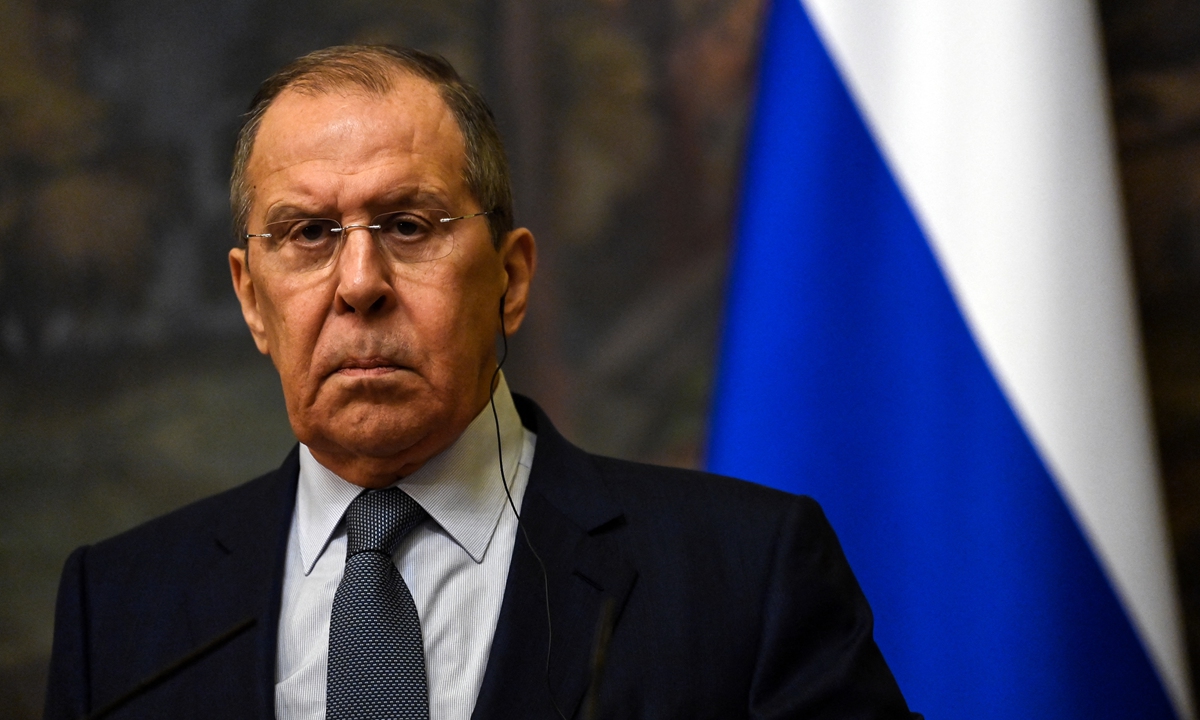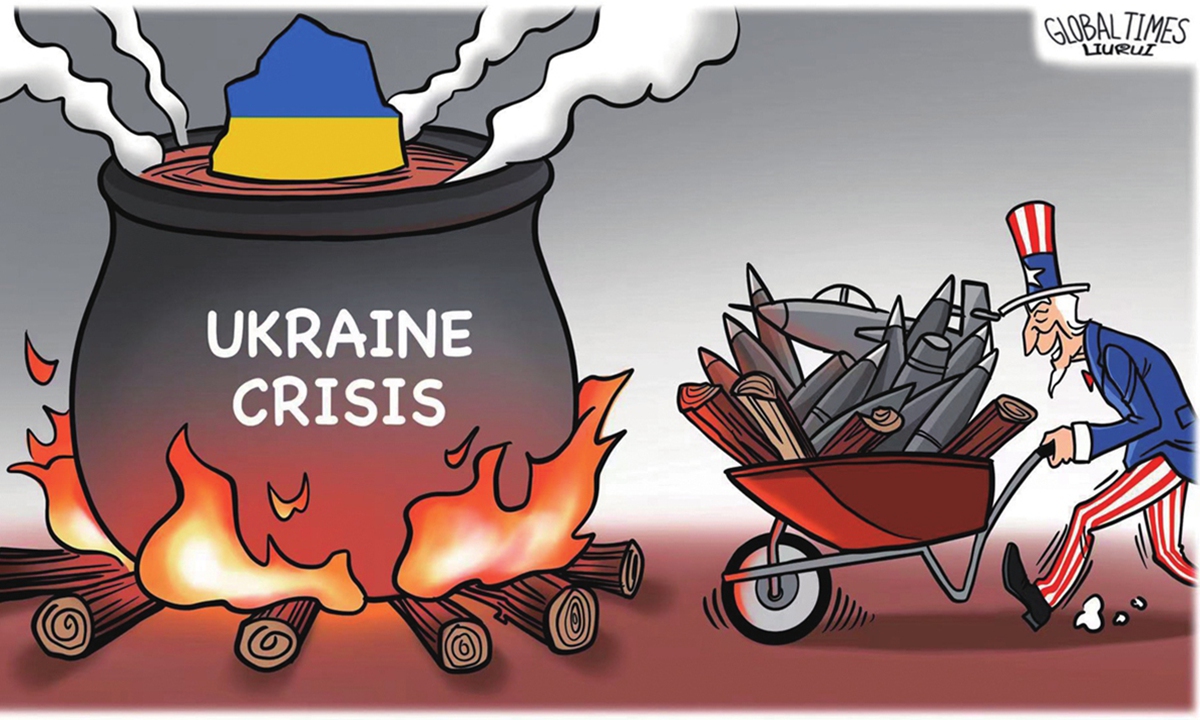Lavrov's statement shows willingness to negotiate, but no concessions in solution as he stresses 'root causes' of conflict: expert

Sergey Lavrov Photo: AFP
Russia is "ready for negotiations" with Ukraine, but they should be aimed at eliminating the root causes of the Ukrainian crisis and taking into account the real situation on the ground, Russian Foreign Minister Sergey Lavrov said in an interview with Russian news agency Sputnik on Sunday.
"In particular, we are talking about the demilitarization and denazification of Ukraine, ensuring its non-aligned, neutral and nuclear-weapon-free status, and eliminating long-term threats to Russia's security emanating from the West, including the expansion of NATO," Lavrov said.
Kiev must assume specific obligations to ensure the rights, freedoms and interests of Russian-speaking citizens and, of course, recognize the territorial realities enshrined in the Russian Constitution, Lavrov added, the report said.
He said that Russian President Vladimir Putin has previously outlined Russia's approaches to resolving the conflict around Ukraine, including the need to adopt specific commitments to ensure the rights of Russian-speaking citizens and recognize territorial realities. "Implementation of the specific proposals formulated by the head of state will help put an end to the conflict and reach comprehensive, long-term, fair and legally binding agreements. This is the only way to achieve lasting peace," Lavrov said.
During his annual press conference last Thursday, Putin expressed his frustration with Kiev's refusal to engage in negotiations, Sputnik reported, attributing this resistance to external influences.
Sun Xiuwen, an associate professor at the Institute for Central Asian Studies at Lanzhou University, said Russia has long stated that the two main "root causes" of the Ukraine crisis are NATO's expansion plan and the Ukrainian authorities' refusal to comply with the Minsk agreements, which explicitly stipulate the withdrawal of "all foreign armed forces and military equipment" from Ukraine. "Both points are closely related to what Lavrov said in the statement," Sun told the Global Times on Sunday.
Sun believes Lavrov's statement reaffirms Russia's consistent position toward resolving the Ukraine crisis - that it conveys a positive signal of willingness to negotiate, but there are no significant concessions in the proposed solutions.
The possibility of conducting peace talks still largely depend on the West's strategic arrangements in Ukraine, however, given the ongoing military assistance from the West to Ukraine, the likelihood of achieving a multilateral compromise in the short term is relatively low, Sun noted.
The US is expected to announce that it will send an additional $1.25 billion in military assistance to Ukraine, US officials said Friday, as the Biden administration pushes to get as much aid to Kiev as possible before leaving office on January 20, the AP reported on Saturday.
The large aid package includes a significant amount of munitions, including for the National Advanced Surface-to-Air Missile Systems and the HAWK air defense system. It also will provide Stinger missiles and 155 mm- and 105 mm artillery rounds, officials said, per the AP report.
The US and NATO will face a "decisive response," including military-technical countermeasures, should they make new missile threats against Russia, Lavrov said on Sunday, the Xinhua News Agency reported.
In the interview, Lavrov also said that Russia will have to abandon its unilateral moratorium on the deployment of ground-based intermediate- and shorter-range missiles as it has become nearly untenable despite officially remaining in effect, according to Xinhua.


